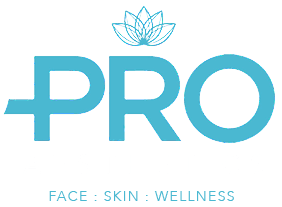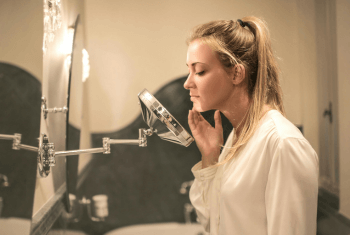How to manage adult acne
Adult acne is something that many people feel embarrassed about because there are many stereotypes and assumptions made about it. Spots and blemishes are (sometimes wrongly) associated with your teenage years and puberty, but actually many people manage their acne or problematic skin past their teens and into their adult years.
Acne can be difficult to handle if you have sensitive skin that is unpredictable or prone to breakouts, so here’s our guide on how to handle to your acne.
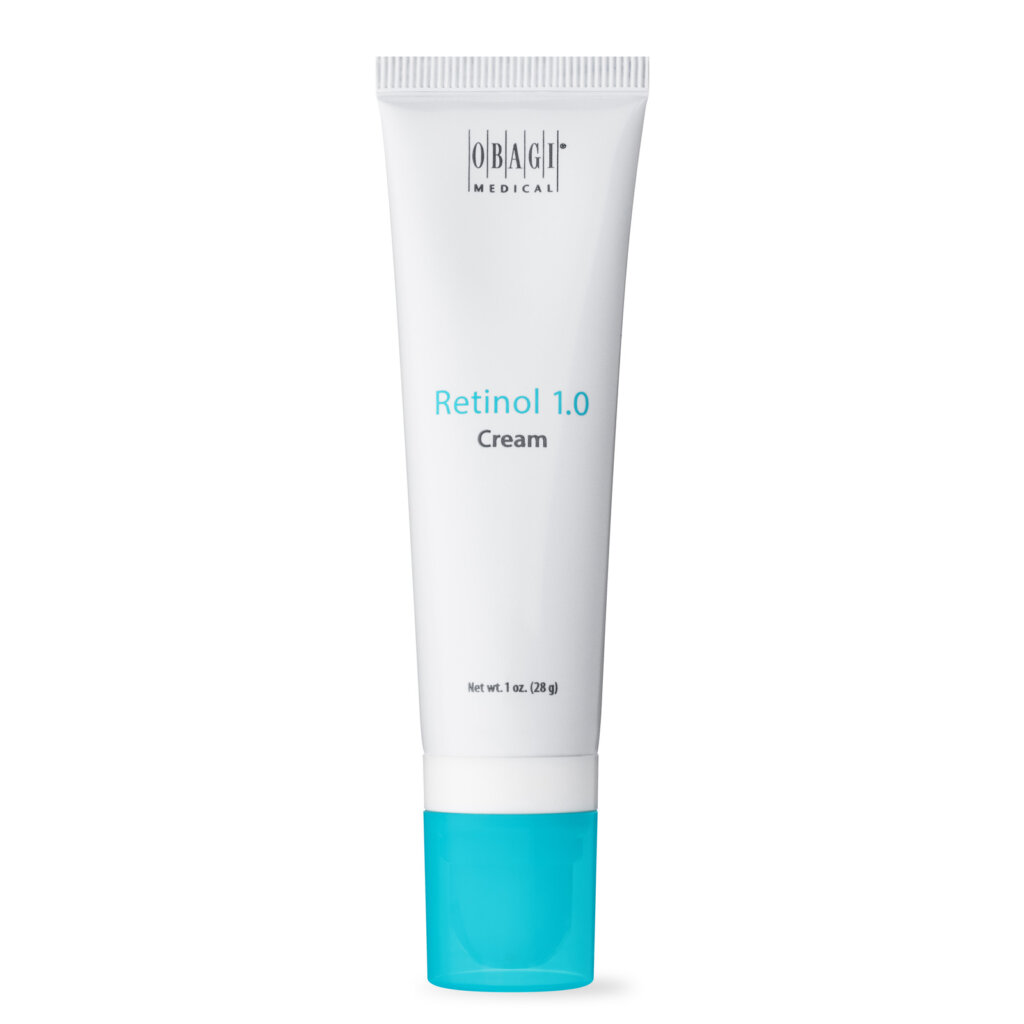
Follow the correct skincare routine for you
Managing acne and breakouts means managing your skin. Always wash your face with a cleanser before bed each night so that when your body is in its restorative cycle, it can refresh your skin without any topical blockers. If you are someone who likes to go to the gym, then consider cleansing your face after a gym session too, not just washing with water, so you can clear away any sweat and oils.
Acne often comes hand-in-hand with oily skin, so make sure you are exfoliating once a week. For skin that isn’t sensitive and with less severe breakouts, this can be done with an exfoliating face scrub or a light serum.
For more severe acne or problematic skin, you may be recommended to use a retinoid or tretinoin. Retinol is available to buy over the counter or online from many retailers and pharmacies (in fact you can find Obagi retinol with us). It encourages skin cell turnover by shedding old cells and encouraging the growth and production of new ones, which helps reduce blemishes and spots. Tretinoin also does this, but on a stronger level. This is why tretinoin is only available through prescription, which if you think you may need we can assess and provide you with some.
Avoid touching and rubbing your face
There is so much dirt, debris, and oil on our hands without us realising. Even if we take pretty good care of our hygiene and like to think our hands are clean, you are actually picking up particles from every surface you touch. By then rubbing your face or touching your skin, you are transferring the oils and debris from your hands and fingertips onto your skin which could irritate it.
If you are someone who already experiences oily skin, then you’re only increasing the concentration with these touch points!
If you’re regularly rubbing your face or sitting at a desk propping your chin with your hand, for example, you could be helping to stimulate more oil production in the skin too.
By rubbing the skin, you’re sort of activating your sebum production by interacting with it, thus potentially making it more oily. This can also exacerbate any spots or blemishes you may have.
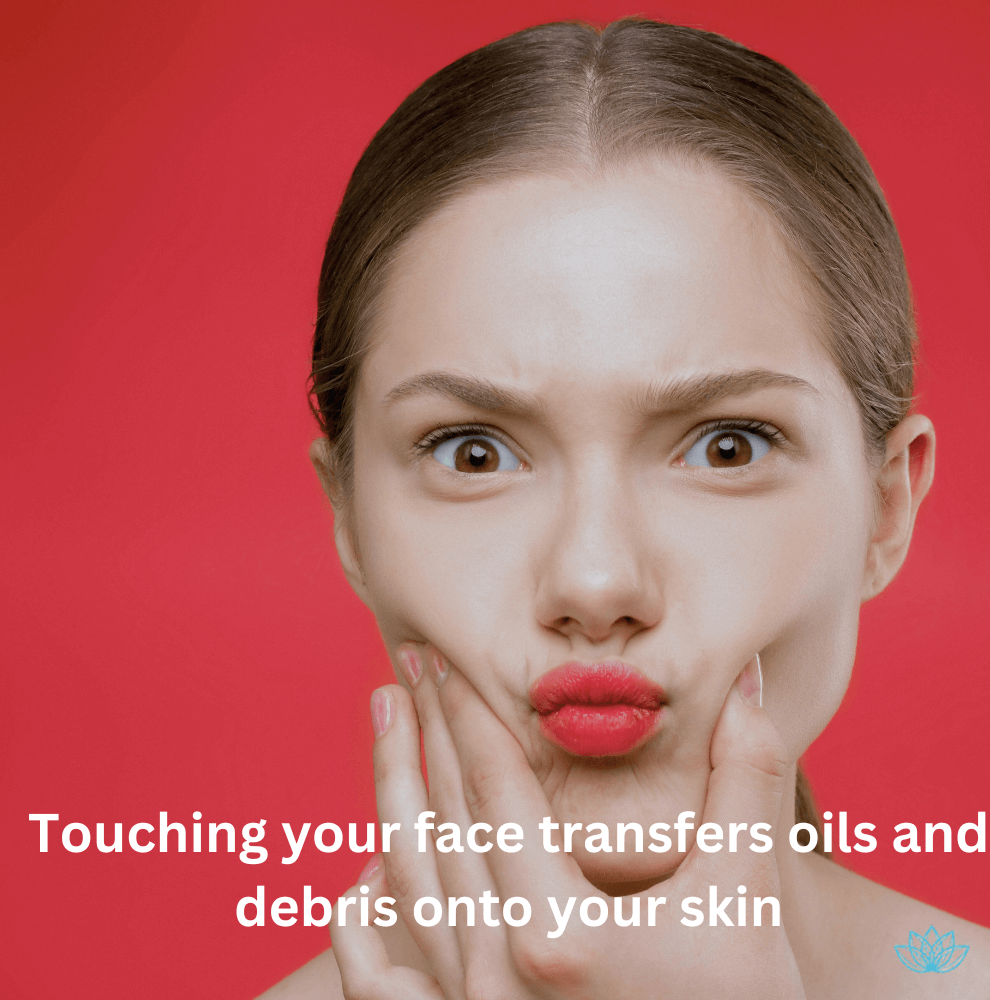
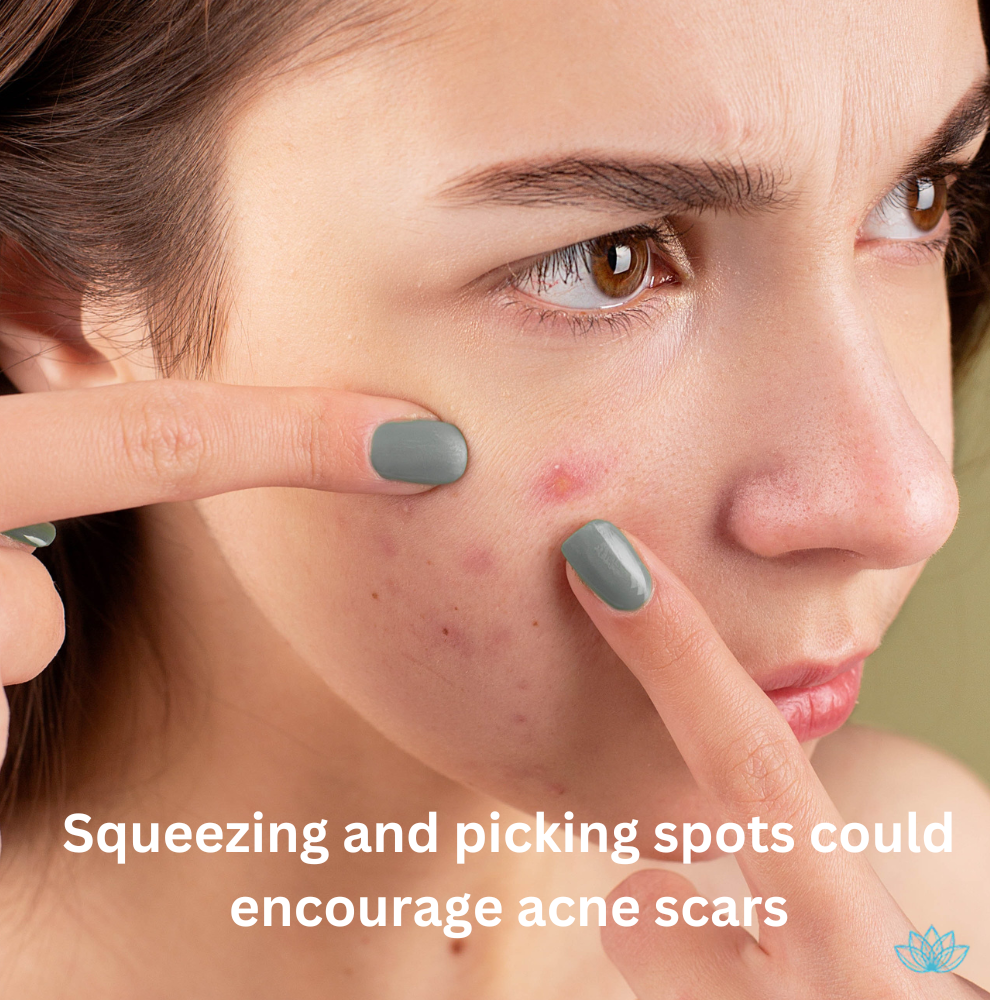
Avoid picking and squeezing spots
We know this is a difficult one to follow, because sometimes you just can’t help it when you really want that spot gone or you’re doing it absentmindedly. However, if you’re popping spots before they’re ready and worrying the skin, then you could be doing more harm than good. Oftentimes during an acne breakout your skin is inflamed, so if you squeeze a spot prematurely you could cause the skin to swell and rush to heal itself.
The skin does this by producing new skin cells and collagen at an exaggerated rate because it is trying to heal an open sore. The skin proteins and collagen knit together quickly and, more often than not, irregularly. This causes the appearance of pitted or dimpled acne scarring, as our bodies will always prioritise healing and keeping us safe over the aesthetics of smooth skin.
Also, similar to our second point of touching and rubbing your face, you could be doing more harm than good. Your fingertips could be introducing oils and debris from elsewhere to your skin and to an open blemish or pore, giving bacteria easy entry to your skin barrier. Your spots could therefore come back with a vengeance.
Consider a chemical peel or skin peel
A clinical chemical peel or skin peel is a highly effective way to manage adult acne. This treatment is a form of chemical exfoliation that encourages the skin to shed dead, dying, and damaged skin cells as well as removing impurities like oil and debris.
They are particularly effective when administered in a course of 6 treatments every 3-4 weeks, as this helps to gradually remodel the skin’s barrier and reduce oil production for a longer period of time. By ‘training’ the skin to produce less oil and removing damaged skin cells from clogging your pores, you can enjoy better skin for longer.
Almost anyone can benefit from a chemical peel, not just those with acne, as they can be delivered in different strengths with different active ingredients to suit you. This means you can also receive a peel to help with hyperpigmentation, sun damage, or even just a deep exfoliation to treat yourself.
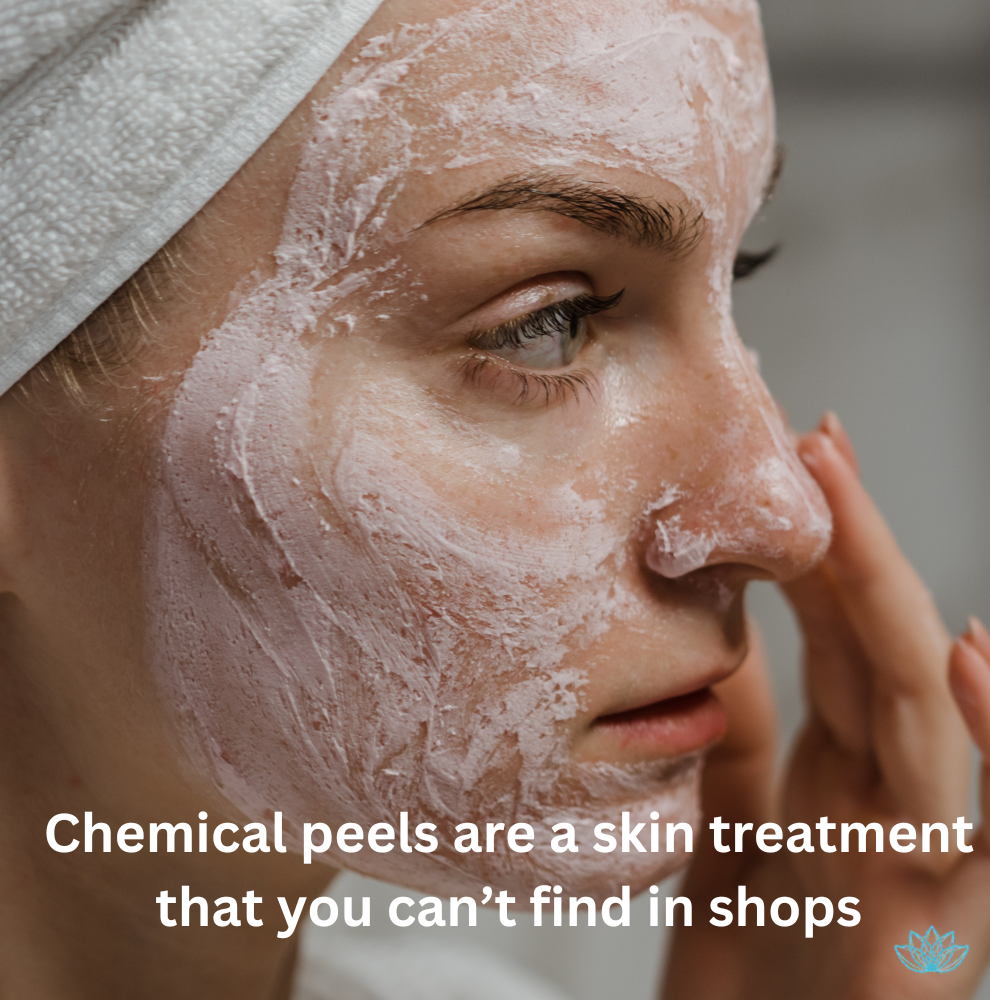
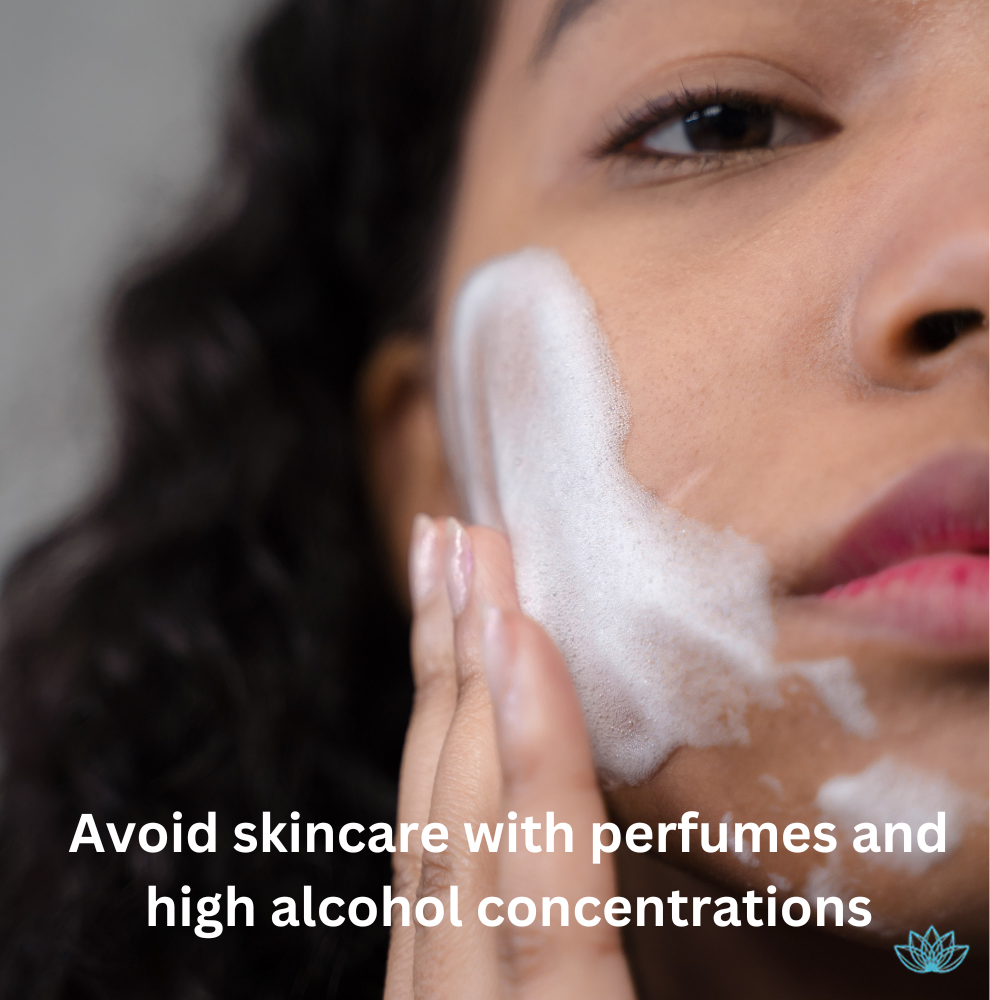
Avoid skincare with poor ingredients
You don’t necessarily need to have medical skincare prescribed to you to see beautiful results and clearer skin. What you do need to bare in mind, though, is their ingredients and added chemicals.
One ingredient we specifically warn our clients of is perfumed skincare or those with added fragrance. This is because the fragrance is often alcohol-based, which can cause skin irritation and inflammation for those with sensitive skin. Similarly, if you are using retinol or tretinoin and your skin is shedding, introducing an alcohol-based fragrance in a cleanser will sting and possibly cause some kind of allergic reaction, or at least topical redness.
We generally also advise to avoid alcohol in skincare in general, as many highstreet brands you find in stores use high concentrations of it to compensate for non-clinical ingredients. Medical skincare is able to use stronger ingredients and acids that may be only available with a consultation, assessment, or prescription, whereas highstreet skincare tries to replicate this with a high alcohol concentration. Alcohol strips the skin of oil and dries it out which, if you have oily skin, probably sounds like good thing. Actually, this may cause your skin to overcompensate and produce more oil that necessary, just to replenish what was lost with interest. If you need help, we can identify which Obagi system is best for you.
Adult acne can be difficult to manage, yes, but it doesn’t have to be. At Pro Aesthetics in West Bridgford, Nottingham, we prioritise long-lasting treatment journeys with beautiful, maintainable results for all skin types. To book a consultation to learn more about your skin, discuss your concerns, book a skin peel, or enquire about medical skincare, call the clinic directly or contact us online today.
